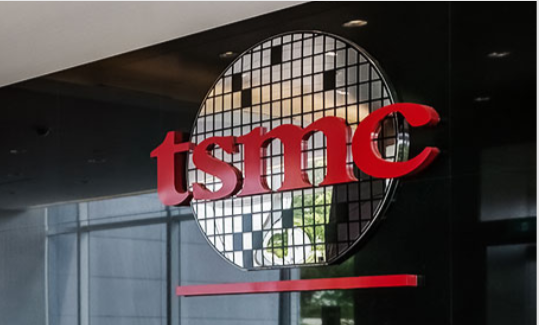LetÄôs start from the premise that Search is Äúgame-overÄ?. Google has won. The best explanation of GoogleÄôs dominance is in this Read/WriteWeb post. But if there is a Google-killer out there, the odds are that it wonÄôt be from any of these types of search start-ups:

- Cool new features – user interface, alerts, visualization or whatever. The problem is that no single feature is enough for users to switch from Google and most people donÄôt have the time or motivation to use multiple search engines. Best start-up bet? Build cheaply and sell to GYM (Google-Yahoo-Microsoft) for R&D value.
- Natural Language. There is big money riding on this one. It feels wrong to me. This is too much heavy science to crack problems that are totally simple for humans; and Web 2.0 is getting pretty good at aggregating the expanding global pool of knowledge workers. Best start-up bet? Raise tons of $$$$ in the hope of a scientific breakthrough (cure for cancer might be better use for the $$$ IMO).
- Vertical Search and Human Search. I put the two together. Human Search works best in well-defined domains. There are lots of Vertical Search engines that already work well and plenty more will come. Best start-up bet? Build leadership in a domain and sell to GYM or a Traditional Big Media Co before the steamroller called Google Universal Search rolls over you.
It is possible that Freebase will be a major breakthrough; but as it is not even in Beta yet, it is hard to judge. It is also stretching the definition of Search too far. And maybe that is the point Äì the Google-killer wonÄôt be ÄúBetter SearchÄô, it will be ÄúPost SearchÄ?.
What is Post-Search?
If Search is Äúgame-overÄ?, where are the emerging set of problems that new start-ups can solve? Where is the ÄúPost SearchÄ? space? The place to look is what we do AFTER a Google Search. Search is usually part of some research that we are working on. Search is part of (Re)Search.
Research covers Four Levels from simple to complex:
Level 1. Simple and personal. Google Search does the job. Smarter tag-based bookmark tools will come in future versions of Firefox or third party extensions. This will improve how we store, analyze and retrieve our past Searches.
Level 2. Small team research. This is where the current process is totally broken and we rely on Bookmarks, cut/paste into Word/Excel and email. Del.icio.us showed the way with Social Bookmarks, but it is too open for projects where confidentiality is important. The best example so far looks like Ma.gnolia. There is still a ton of work to be done in this area and the tools that break-through will also be able to scale to levels 3 and 4.
Level 3. Enterprise 2.0 tools. We now enter the realm of multiple teams and of outsourced teams working within a common workflow. The current batch of mainstream Enterprise 2.0 tools Äì Wikis, Blogs and RSS Äì are a major improvement on what came before. However they donÄôt offer enough structure for hard-core enterprise-scale research projects. The possible directions here include Structured Blogging, Semantic Wiki and Microformats. Enterprise 2.0 also requires integration; somebody needs to build and support a whole stack that includes Scrapers/Crawlers like Dapper, Survey tools, Publishing (Blogs and Wikis). At this level, Visualization, navigating the Äúknowledge graphÄ?, becomes a critical addition to hyperlinks.
Level 4. The Big Problems. One step further is large communities focused on big single issues. This shares some characteristic with social networking, except that these ÄúResearch NetworksÄ? are tackling big global issues in areas such as Healthcare, Education and Poverty Reduction. The Internet is the most amazing extension of human capability. Surely it can do something more useful than enabling better ways for companies to sell more stuff to us, or better games to titillate our ADD bored minds, or a lazier way to get a date on a Saturday night? How about something like Moveon.org, but without the party political bias, enabled by all these new tools, and focused on a single issue such as how to solve the Education crisis in America?
Re(search) Requirements
The basic Search capability for Research could be improved by recognizing that this is different from consumer search a.k.a. ÄúshoppingÄ?. Yahoo has something called Mindset (which sadly seems to be stuck in ÄúBeta limboÄ?) that nicely shows the difference between Äúsearch to buyÄ? and Äúsearch to researchÄ?.
I am a classic Äúfairly early adopterÄ? candidate for these kinds of tools. My use extends to Levels 1 and 2 and I am looking for Level 3 type tools for future projects. I believe that these tools have to move easily through the complexity levels. Here is what I would look for:
- I do not want to download anything (even a Firefox extension) until the server-based version shows me it is useful and stable.
- It has to pass the Äúdo something useful for me right now and donÄôt mess with my head while I figure out how to use itÄ? test.
- I would expect the personal research tool (Level 1) to be free, but I would be prepared to pay small amounts for a collaborative Level 2 version; so a ÄúfreemiumÄ? approach maybe viable. (However I suspect that there is a much bigger play, as there is big potential value in the Äúdatabase of intentionsÄ? that would be created, as long as privacy is rigorously maintained).
Conclusion
I imagine that lots of R/WW readers do this kind of research, on new technologies and markets. I would love to hear from you. Do you face similar issues? What tools do you find most useful? Is there a product out there fits my requirements list? What would you add to the requirements?










